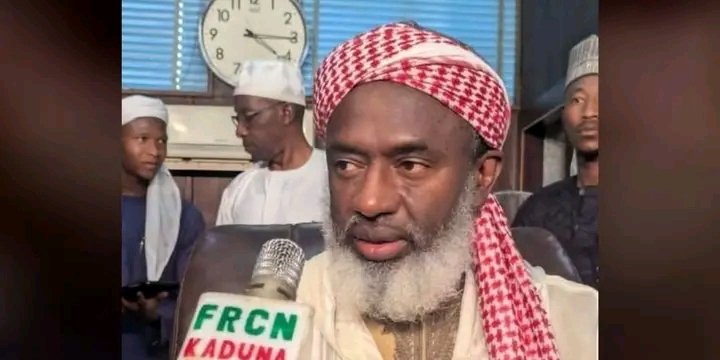Editorial Opinion
The Saudi government’s decision to bar Sheikh Ahmad Gumi from performing the 2025 Hajj and deport him to Nigeria has sent ripples through diplomatic and religious circles, reigniting a fierce debate about the cleric’s controversial role in Nigeria’s fight against insecurity.
Long known for his public interactions with bandit leaders under the pretext of dialogue, Sheikh Gumi has polarized public opinion. While he positions himself as a mediator seeking peaceful resolutions, many see his conduct as dangerously close to legitimizing criminal insurgents. The Saudi decision, though not officially explained in detail, appears to reflect concerns over the cleric’s associations, concerns shared by many within Nigeria.
At the heart of this controversy lies a deeper question: what role, if any, should religious leaders play in negotiating with armed non-state actors? While Islamic clerics have historically served as agents of peace in volatile regions, the absence of transparency and oversight in Gumi’s engagements casts doubt on his sincerity and impact.
Nigeria is currently embroiled in a complex internal security crisis, where banditry, terrorism, and ethno-religious tensions intersect. The government’s attempts to contain this violence have often faltered, leading some to embrace non-state actors like Gumi as unofficial intermediaries. However, the cleric’s opaque dealings, including his access to and public endorsement of armed groups, have raised red flags both domestically and internationally.
The Saudi ban is not merely an administrative action, it may well be interpreted as a diplomatic rebuke and a cautionary stance against perceived enablers of extremism. That a leading Islamic authority has taken this step should prompt a sober reassessment of the lines between mediation, endorsement, and complicity.
Moreover, the Nigerian government cannot afford to remain passive. While dialogue remains an important tool in the counterinsurgency toolkit, it must be guided by integrity, accountability, and national interest. Any engagement with clerics or civil society actors must be subject to scrutiny to ensure it supports, not undermines state legitimacy and public trust.
This incident also highlights the urgent need for a coherent national security strategy. Nigeria must move beyond ad hoc measures and craft a structured framework for engaging communities and intermediaries. Without clear parameters, well-meaning efforts risk being hijacked by those with murky loyalties or self-serving agendas.
Ultimately, Sheikh Gumi’s Hajj ban serves as a wake-up call. The burden now rests on Nigerian authorities to define the acceptable boundaries of clerical involvement in conflict resolution and to ensure that those who claim to speak for peace are truly working toward it.
In the long run, Nigeria’s stability will hinge not just on military strength, but on moral clarity and strategic unity. The fallout from this decision must therefore be harnessed as an opportunity to rethink, recalibrate, and reaffirm what roles religious leaders should play in the pursuit of national peace and security.
For advert placement and inquiries, publication of press releases, and news coverages, please call: Phone: 08052898434 Email: editor@eyereporters.com, click here to view the advert rates.



